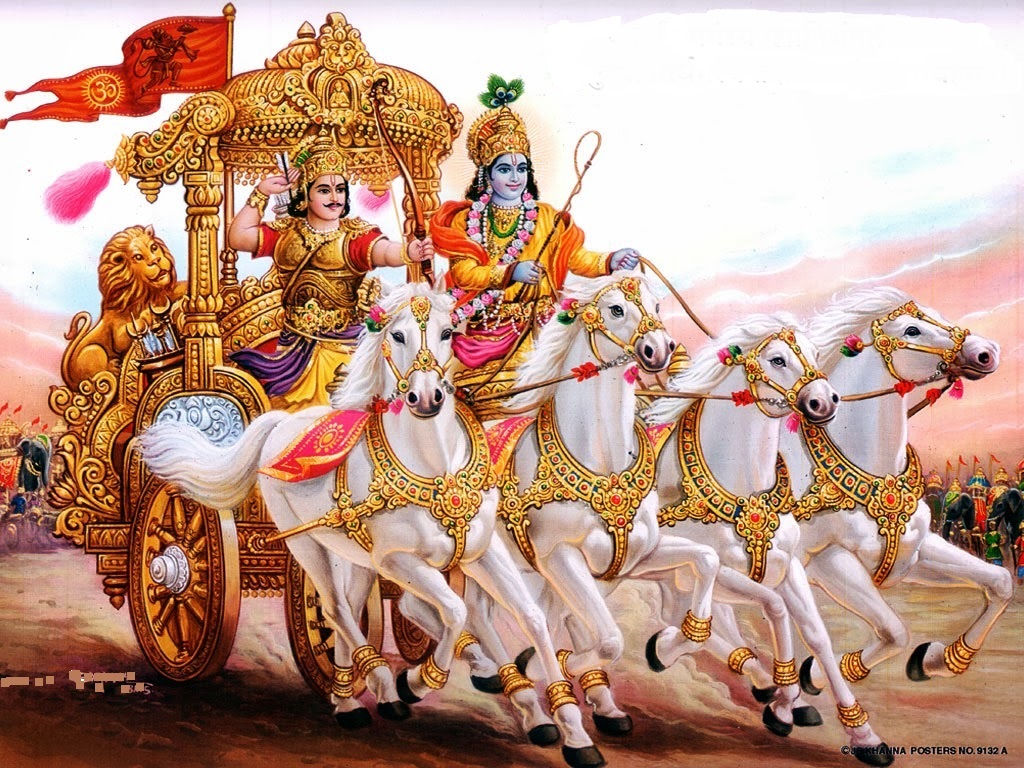The Spiritual Import of the Mahabharata and the Bhagavad gita : Ch-10. Part-4.
Chapter 10: The Imperishable Among All that is Perishable :
Part-4.
The comprehensive philosophy of the Gita is presented in a single verse here again, as in several other places.
We should not be excessively religious, or excessively anything, because any kind of excess, even if it be devotion, so-called, entails a kind of dislike and hatred which unwittingly enters into the field of our consciousness.
We are made in such a way that we cannot exist without hating something.
We may be high class devotees of God, yogis par excellence, but the mind is made in such a way that it cannot escape this predicament of condemning something, deriding something, looking down upon something and contrasting something with another thing.
This attitude is unfortunate and is not a positive component of true yoga.
This is a message that is given in a seed form at the end of the seventh chapter, which recounts in passing the cosmology of the Bhagavadgita.
This cosmology is detailed further at the very commencement of the eighth chapter as an answer to the queries raised by Arjuna, the questions that were stirred in his mind by the last verse itself.
What is this adhiyajna, what is adhibhuta, what is adhidaiva, and what is this thing that one is expected to enshrine in one’s own mind at the time of passing?
These are the questions with which the eighth chapter begins. Kim tad-brahma kim adhyatmam kim karma purusottama, adhibhutam ca kim proktam adhidaivam kim ucyate.
Adhiyajnah katham ko’tra dehe’smin madhusudana, prayana-kale ca katham jneyo’si niyatatmabhih.
These questions of Arjuna at the beginning of the eighth chapter emanate spontaneously from the words of Sri Krishna at the end of the seventh chapter.
Swami Krishnananda
To be continued ....





Comments